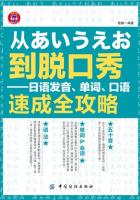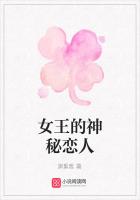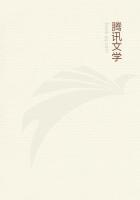At the end of the 19th century, the Qing Emperor tried on nu- merous occasions to bypass France to establish diplomatic rela- tions with the Vatican, but this always foundered on French op- position. At the beginning of the 20th century, the government resumed dialogue with the Vatican to establish a normal rela-
tions. In November 1914, Pope Pius XV sent his regards to Yuan Shikai via the Apostolic Delegate in Beijing. In 1918, the foreign minister Lu Chengxiang, who was a Catholic, tried to contact Rome to establish direct diplomatic rela- tions. On July 11, 1918, the Vatican released an announcement in the official newspaper L"Observatore Romano that it intended to send apapal delegate to China. But this idea was dropped again due toFrench opposition.
After the May 4th Movement in 1919, Chinese Catholics became rather enthusiastic to build up the church. Rome made certain adaptations to make the Church more Chinese. Once again, the Government resumed diplomatic contacts. In 1922, Rome sent Bishop Celso Constantini as the Apostolic Delegate to China. In November, he arrived in Hong Kong and on New Year"s Day 1923, he arrived at Beijing to meet President Li Yuanhong. Constantini"s residence was set up temporarily in Wuhan and in 1928 was officially moved to Gong Wang Fu in Beijing. On October 1, 1923, Pope Pius XI recognized the Nanjing Government in a telegram. On January 22, 1929, Constantini was invited to meet Chiang Kaishek, but, in 1933, he returned to Italy for health reasons. Archbishop Zaning (1890-1958) succeeded him.
Sending the Apostolic Delegate to China ended France"s power to overshadow Rome, however, the development of the diplomatic relations did not run smoothly. The Vatican publicly recognized the state of Manchukuo established by the Imperial- ist Japanese. In February, it named the Bishop of Jilin, a priest from the Parish Foreign Mission, to be the Apostolic Delegate toManchukuo, which became a diocese in its own right separate from China. In September 1938, Pope Pius XI received church representatives from Manchukuo and wrote to Emperor Pu Yi. In February 1939, the newly elected Pope XII wrote to Pu Yi reaffirming Rome"s stance. On March 12th, the Chinese govern- ment sent a special envoy Gu Weijun to Rome to attend the con- secration of Pius XII, but he made no criticism of the Japanese invasion of China as was hoped. Archbishop Zannini sent a pas- toral letter to Chinese Catholics asking them to be neutral on the Japanese invasion, "Be wise and patient, concentrating on holy things and not politically oriented. Try to avoid any expressional support.‘ Until 1942, Rome resisted pressure to abandon its dip- lomatic ties with Japan.
The actions of the Rome and the Apostolic Delegate of- fended the Chinese including many Catholics. The Chinese gov- ernment tried to use diplomatic channels to ask Rome to take the China side even though the Archbishop"s pastoral letter was voic- ing opposite opinions. From the September 18th Incident in 1931, when the Japanese occupied the three provinces of Northeast China until July 7, 1937, when war was declared throughout China, the whole nation"s destiny worried all patriotic people. Most Catholics shared the same feelings as the rest of the coun-
try that the nation was in trouble and every citizen had a duty to safeguard it. Many well-known people, such as Ma Xiangbo, Lu Chengxiang and Yu Bin expressed their support for China to resist the foreign invasion. While at an advanced age of 92, Ma Xiangbo wrote an article Ri Huo Jing Gao Guo Ren Shu (Letter to remind all people about Japanese"s crimes)to call on all people in China to be united to save the nation. In December, he wrote Qi Gao Qingnian Shu (Letter to the Youth with tears)to call on the youth to go to the countryside to persuade them to standup for China. In January 1932, he wrote Xin Nian Gao Qing Nian Shou (Letter to the youth on New Year’s Day) asking the young people to boycott Japanese products. Mean- while, he encouraged them to study science in order to build up and strengthen the country. The Apostolic Delegate, who was in the northwest on a pastoral visit, went to Hankou and sent a pas- toral letter asking the Catholic Church to do more in regard to charitable works in wartime. He also celebrated Mass for vic- tims of the war. Many patriotic Catholics donated money or cloth- ing to the soldiers in the frontline; some even formed a emer- gency medical team to go with the military. Many missionaries in Manchukuo also secretly helped the anti-Japanese movement; some even protected the anti-Japanese leaders in their houses.
The Chinese communist Party established its government in Wan Pin County in 1938 and Father Zhao was elected as a member of the council. He received many local and military officials in his church and had a medical team to help wounded soldiers.
A year after establishing diplomatic relations with Japan, Rome had also official diplomatic relations with the Republic of China in June of 1943. In July, Xie Shoukang was named as the first ambassador to Rome. The Vatican, however, did not send a delegate to China until 1946 when Archbishop Ribeiri, a Moroc- can, was named the Apostolic Nuncio to China. When Xie Shoukang retired from his post in 1946, Wu Jingxiong, a Catho- lic scholar took over. In June 1949, Wu left his post for the US and Zhu Ying went to Rome in his place.
The hierarchical system was officially implemented in April1946. There were 20 provinces and each province had an arch- bishop. There were 79 dioceses; each diocese should have had a bishop. By 1948, out of the 20 provinces, there were 84 dioceses and 35 administrative regions.















